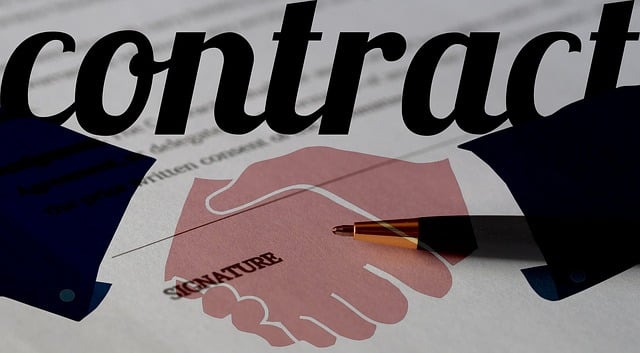A comprehensive student lease guide equips tenants with vital knowledge for a positive living experience. It breaks down students' rights and responsibilities, including safe housing, clear communication about rent, and prompt maintenance. The guide emphasizes negotiable terms like flexible notice periods and subletting options, encourages fixed-term leases, and aids in budgeting by detailing utility costs. Understanding deposits, fees, and security measures further protects students financially. It also navigates lease breaking scenarios, highlighting the importance of contract review and legal guidance. Building a solid rental history through timely payments and responsible maintenance strengthens students' future leasing opportunities.
Navigating leases and rental agreements can be a daunting task for students new to independent living. This comprehensive student lease guide breaks down essential components of agreements, empowers tenants with rights and responsibilities knowledge, and offers valuable tips on negotiating terms, managing deposits, and understanding breaking lease legalities. By the end, students will be equipped to build a solid rental history.
- Understanding Your Rights and Responsibilities as a Student Tenant
- Key Components to Look for in a Lease Agreement
- Negotiating Terms: What Students Can and Should Ask For
- Handling Deposits, Fees, and Security Measures
- When and How to Break a Lease: Legal Considerations for Students
- Building a Good Rental History: Tips for Student Tenants
Understanding Your Rights and Responsibilities as a Student Tenant

As a student tenant, understanding your rights and responsibilities is crucial in the student lease guide. Knowing what to expect from your rental agreement can help ensure a smooth living experience. You have the right to live in a safe and habitable unit, free from health and safety hazards. This includes proper maintenance of the property and timely repairs. Your landlord must also provide clear communication about rent amounts, due dates, and payment methods.
In addition to your rights, student tenants have certain obligations. These include paying rent on time, maintaining the property in a clean and safe condition, and reporting any issues or damages promptly. It’s important to review the lease agreement carefully, ensuring you understand all terms and conditions. Regular communication with your landlord is key to resolving any concerns or disputes that may arise during your tenancy.
Key Components to Look for in a Lease Agreement

When navigating leases and rental agreements as a student, it’s crucial to scrutinize several key components to ensure a fair and protective agreement. A comprehensive student lease guide should include detailed information about rent amount and payment terms, duration of stay, and any included utilities or amenities. Be sure to understand the conditions for ending the tenancy early, as well as the notice period required by either party.
Additional essential elements in a lease agreement include clear provisions for maintenance and repairs, both major and minor. Students should also look for clauses outlining security deposits, how they’re handled, and under what circumstances they might be refunded. Finally, always read the fine print regarding subletting restrictions and any local tenancy laws specific to student housing.
Negotiating Terms: What Students Can and Should Ask For

When navigating leases and rental agreements as a student, it’s crucial to know what terms you can negotiate. A student lease guide suggests that students should aim for flexibility and fairness in their agreements. This could mean asking for longer notice periods before rent increases or the option to sublet during holidays without penalty. Students may also request clearer communication about maintenance responsibilities and timely repairs.
Furthermore, considering the length of stay, students can bargain for a fixed-term lease that aligns with their academic year, ensuring they’re not bound by long-term commitments. Also, asking for a detailed breakdown of utility costs and the inclusion of basic services in the rent can help students budget effectively. Remember, knowing your rights and what to ask for is a powerful tool when navigating student leases.
Handling Deposits, Fees, and Security Measures

When navigating leases and rental agreements as a student, understanding how to handle deposits, fees, and security measures is crucial for a smooth experience. Deposits, often non-refundable, are a common requirement to secure a lease. As part of your student lease guide, it’s important to know what these funds cover—typically, any damage beyond normal wear and tear at the end of your tenancy. Ensure you get detailed information on this process from the landlord or property manager before signing.
Fees, including application fees, administration charges, and utility deposits, are additional costs associated with renting. These should be transparently stated in your rental agreement. Understanding these financial obligations upfront can help students budget effectively, ensuring they have enough funds for their academic expenses and living costs without unexpected financial strain.
When and How to Break a Lease: Legal Considerations for Students

Breaking a lease can be a complex process, especially for students who may be navigating their first rental agreement. It’s crucial to understand when and how this decision can be made legally. The student lease guide suggests that before taking any action, tenants should carefully review their contract to identify any clauses related to early termination or breach of lease. These terms often include specific conditions, penalties, and notice periods.
For instance, some leases may require a written notice period, typically a certain number of days, before the landlord can commence legal actions for early termination. Students must ensure they comply with these requirements to avoid any potential disputes. Consulting a legal professional or tenant advocacy group is also recommended to gain clarity on one’s rights and responsibilities, especially when encountering unforeseen circumstances like unexpected changes in academic plans or financial constraints.
Building a Good Rental History: Tips for Student Tenants

Building a solid rental history is crucial for students navigating their first leases or looking to improve their credit score. Start by being proactive and reliable. Always pay rent on time; setting up automatic payments can help ensure consistency. Communicate openly with landlords, keeping them informed of any potential issues that might affect your tenancy. Demonstrating responsibility with utilities and maintaining the property in good condition also boosts your rental history.
Additionally, consider co-signing or having a guarantor, especially if you have limited credit history. This shows landlords you have support and someone vouching for your trustworthiness. Regularly reviewing your rental agreements and understanding your rights as a tenant is part of being an informed student lease guide.






